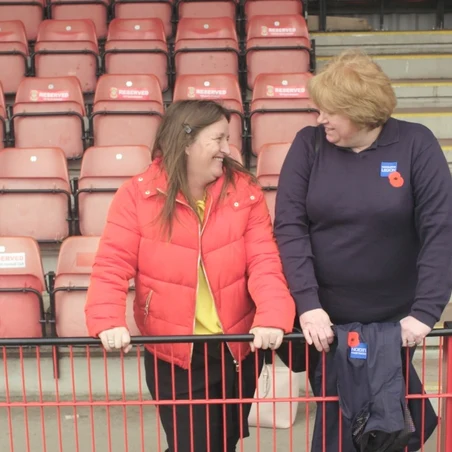Our recent YouGov survey found 69% of people in the UK have little idea what the military actually do, despite 80% agreeing that serving personnel make a valuable contribution to society.
The Armed Forces make a huge contribution to everyday life; serving personnel are mobilised during natural disasters, terrorist attacks, humanitarian and environmental crises and as a peacekeeping force around the world.
Since 2017 a new counter-poaching task force has trained more than 120 rangers to protect endangered wildlife in Malawi.
Helping counter-poaching in Africa
Captain Tony Viney joined the Army in 2001 and saw tours in Northern Ireland, Afghanistan, Bosnia, Iraq and the jungles of Sierra Leone before leaving Service in 2010.
After pursing a civilian career for six years, Tony said he decided to re-join again in 2015 after he “missed the Army.”
In 2017 Tony was deployed to help stop poaching across Africa.
Helping save endangered animals in Africa
“I was identified as somebody that could possibly help set that operation up in the early days, based on my experience. I am a jungle warfare instructor, a qualified tracker and have done operations in Sierra Leone and deep jungle tracking Belize, Brunei, so I kind of fit the bill,” Tony explained.
“It was a fact-finding mission, get out there see if you can do some good and if you can then we'll look at operationalizing in the future.”
“We had a partner given to us – African Parks, who look after the national parks in Malawi. We were embedded with their African park rangers and we would go out on long-range patrols and work alongside them to enhance their capability. We'd help them develop their first aid, their map reading, their tracking skills.
Tony explained that whilst they were there to help train the rangers they also learnt just as much.
“We were there to learn as much as we were to give.”
“We learned a lot about the local wildlife how to deal with it, how to avoid it in certain circumstances. We learnt a lot about navigation. They very rarely use maps and compasses, they use the sun and they know the ground like the back of the hand.”
“But at the same time there were certain skills that we could absolutely impart on them based on our experience. For example, first aid, we taught 42 rangers detailed first aid… battlefield first aid as we call it.”
Working side by side
“I suppose the key role for us was to add value. We were showing them what we knew from our experience across the globe; from coming back from Afghanistan, jungle warfare or whatever else.”
“My intention was to make the guys ghosts. They would deploy by boat, by helicopter or whatever, and then we wouldn't see or hear them for five days unless they came across a poacher.
“The idea being that if they weren't visible then the poachers wouldn't know where they were. They would be unpredictable. It meant that the poachers then didn't have a clue where we were and we had a greater chance of catching them.”
During their four-month deployment Tony and his team were able to stop 21 poachers, found and confiscated 350 snares and saved the lives of many endangered species.
“One of the standout moments has got to be the time that I had the call on the radio from one of my call signs saying that they'd found an elephant alive in a trap and that they were able to free it,” he said.
“It wasn’t seriously injured so it was able to carry on.”
“That's the reason we were there not only to capture these people [poachers] but also to deter them and have an effect. And the elephant now will go on to hopefully live a long healthy life within that park and it was our team that did that. We were part of that.”
Malawi and South African image credit: Forces TV








